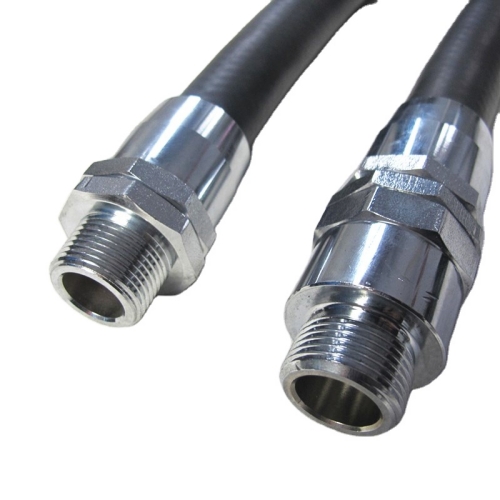335345435
Dez . 10, 2024 05:42 Back to list
fuel hose
The Essential Role of Fuel Hoses in Automotive Systems
In the intricate web of automotive engineering, where precision and performance harmoniously blend, fuel hoses play a vital role. These seemingly simple components are critical for delivering fuel from the tank to the engine, which is essential for the efficient operation of any vehicle. In this article, we will explore the functions, types, and maintenance of fuel hoses, shedding light on their significance in automotive systems.
What Are Fuel Hoses?
Fuel hoses are flexible tubes designed to transport fuel from storage tanks to vital engine components. Made from various materials including rubber, plastic, and synthetic compounds, these hoses are engineered to withstand the harsh conditions presented by fuels, oils, and various temperature ranges. Their design must consider factors such as resistance to fuel permeation, pressure capabilities, and flexibility to accommodate engine movements.
Types of Fuel Hoses
Fuel hoses can be categorized based on their specific applications and construction types. The main types include
1. Fuel Feed Hoses These are responsible for transporting fuel from the tank to the engine. They must be durable and capable of handling the pressures generated by the fuel pump.
2. Fuel Return Hoses In a fuel-injection system, excess fuel is routed back to the tank via return hoses. These hoses also need to manage specific pressure requirements and maintain fuel quality.
3. Vapor Hoses These hoses control the evaporative emissions from the fuel system. They transfer fuel vapors from the tank to the engine where they can be burned, minimizing environmental impact.
fuel hose

4. High-Pressure Hoses Generally used in high-performance engines or vehicles running on alternative fuels, these hoses are designed to withstand higher pressures and temperatures.
Importance of Fuel Hoses
The significance of fuel hoses cannot be overstated. First and foremost, they are critical for ensuring a continuous and reliable fuel supply to the engine, enabling peak performance and fuel efficiency. Any failure in this system can lead to engine performance issues, reduced fuel economy, or even dangerous leaks which could result in fires or explosions.
Moreover, fuel hoses are integral in managing the fuel system's pressure and vapor recovery systems. They help to prevent harmful emissions that would otherwise escape into the atmosphere, contributing to environmental pollution.
Maintenance and Safety
Given their exposure to harsh conditions and chemicals, fuel hoses require regular inspection and maintenance. Signs of wear, such as cracks, leaks, or swelling, should be addressed immediately. Drivers should pay attention to any unusual odors or performance issues, as these can be indicative of a fuel hose problem.
Replacing worn or damaged fuel hoses is essential for vehicle safety. It's advisable to use hoses that meet industry standards and specifications, to ensure maximum reliability and longevity. Professional mechanics should be consulted for replacement and installation, as incorrect fitting can lead to serious safety issues.
Conclusion
Fuel hoses, while often overlooked, play a critical role in the functionality and safety of automotive systems. They facilitate the effective delivery of fuel, contribute to engine performance, and help minimize environmental impact. Regular inspections and maintenance of fuel hoses are vital for ensuring optimal vehicle performance and safety. In the world of automotive engineering, the importance of these small but crucial components should not be underestimated. By understanding their role, we can appreciate the intricacies of automotive technology and the engineering marvels that keep our vehicles running smoothly and efficiently.
-
SAE 100 R17 Black Smooth Cover Hydraulic Hose
NewsMar.07,2025
-
SAE 100 R17 Black Smooth Cover Hydraulic Hose
NewsMar.07,2025
-
SAE 100 R17 Black Smooth Cover Hydraulic Hose
NewsMar.07,2025
-
SAE 100 R17 Black Smooth Cover Hydraulic Hose
NewsMar.07,2025
-
SAE 100 R17 Black Smooth Cover Hydraulic Hose
NewsMar.07,2025
-
steel wire braided hydraulic hose
NewsMar.07,2025



